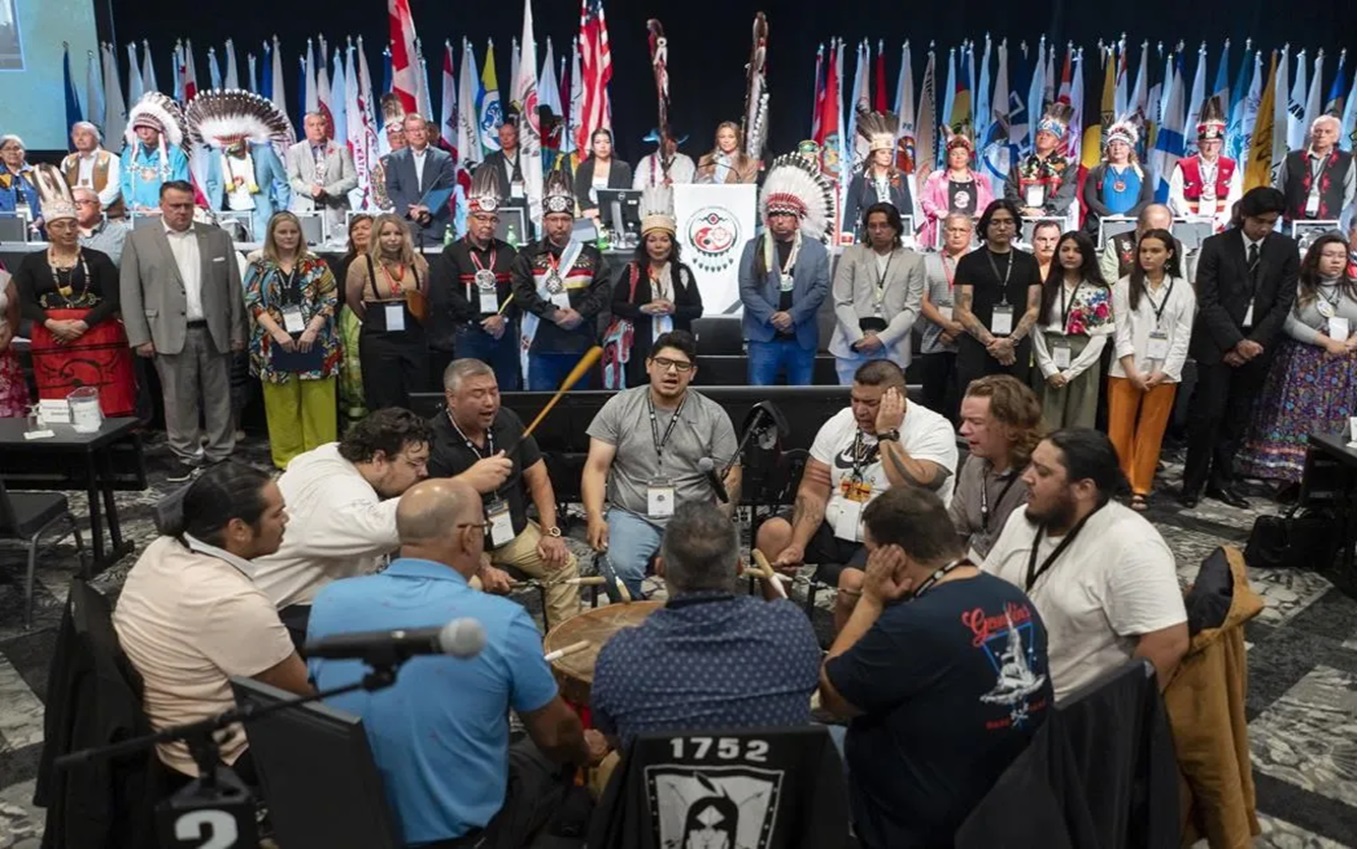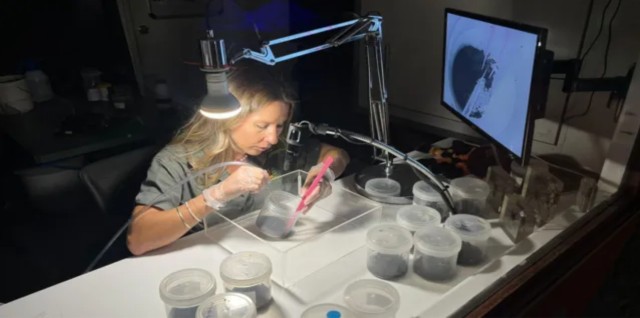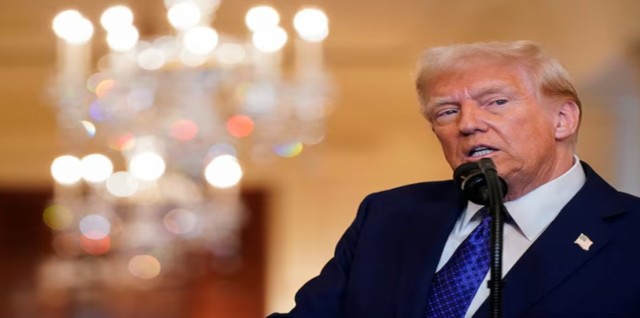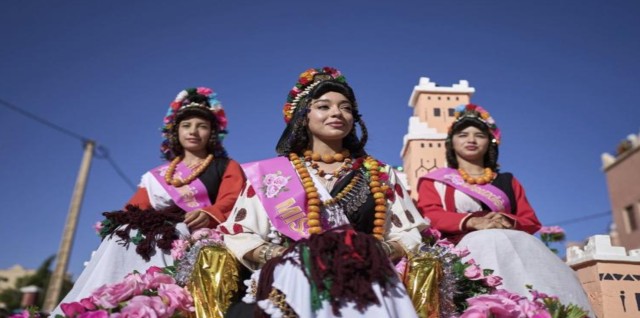
The Assembly of First Nations is poised to choose its new national chief this week in Ottawa. Photo credit: Darren Calabrese, THE CANADIAN PRESS.
The Assembly of First Nations (AFN) is entering its third round of voting in the process of selecting a new national chief. Cindy Woodhouse, the current regional chief for Manitoba, continues to lead her closest competitor, David Pratt, vice-chief of the Federation of Sovereign Indigenous Nations. On the second ballot, none of the remaining four candidates secured the required 60 percent threshold for victory, with Woodhouse securing 41.2 percent of the vote and Pratt at 30.2 percent.
Dean Sayers, a longstanding Batchewana First Nation chief, expressed gratitude to his supporters after being eliminated before the third ballot. The remaining contenders are Woodhouse, Pratt, and Sheila North, a former grand chief of Manitoba Keewatinowi Okimakanak and an advocate for missing and murdered Indigenous women.
During his concession speech, Sayers emphasized the importance of working for future generations, urging the remaining candidates to unite across the country. The AFN election follows the removal of former national chief RoseAnne Archibald over misconduct allegations, with an independent review finding breaches of confidentiality rules and harassment. Archibald's removal sparked controversy, with supporters suggesting it was due to her attempts to change the organization's status quo.
Out of the six candidates initially vying to replace Archibald and interim national chief Joanna Bernard, including Reginald Bellerose and former Alberta regional chief Craig Makinaw, only Woodhouse, Pratt, and North remain after the first round of voting.
Woodhouse, who received cheers for acknowledging Wab Kinew's recent election win as Canada's First Nations provincial premier, called for improved First Nations policing, enhanced communication between chiefs and the executive, and more effective lobbying of Ottawa for addressing concerns in the federal budget.
Pratt emphasized the shared advocacy history among delegates and pledged to "shake this country up" if elected national chief. Sayers vowed not to wait for action from the prime minister, but to be on the ground in communities, taking cues from chiefs. North called for a treaty among First Nations to present a united front to the federal government, rejecting rules imposed by outsiders.
Each member nation in the AFN has one vote, which can be cast by the chief or a registered proxy. The winner must secure more than 60 percent of the vote, and the newly elected national chief is expected to participate in an oath of office ceremony following the final result's announcement.















